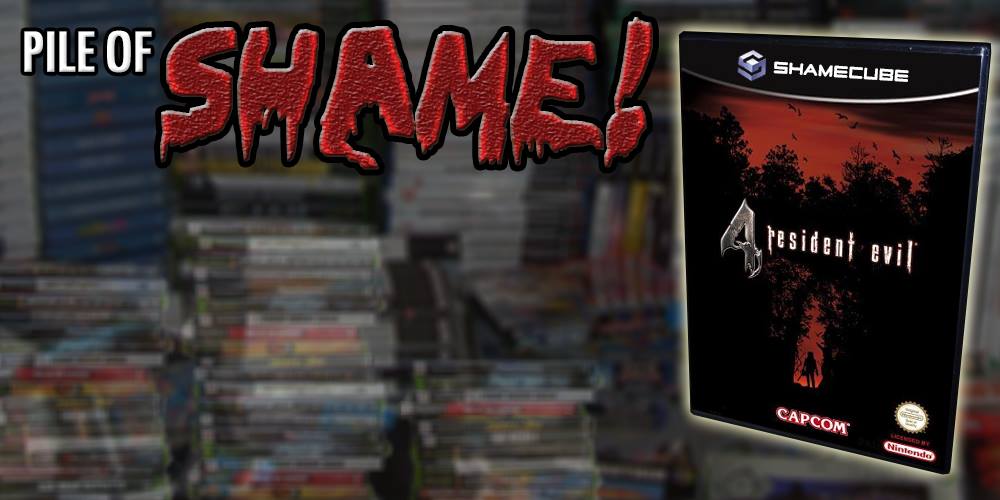
As a longtime fan of survival horror, I couldn’t think of a more shameful title in my own pile than Resident Evil 4. In fact, I’ve literally had a collectors edition for GameCube sitting on the shelf in front of me for the past 7 years. I’ve even played Resident Evil 5 and Revelations HD since, so I just don’t know how I managed to skip out on one of the most highly acclaimed games in my favourite genre. I’ve finally played it, though; albeit 9 years late. Here is what I thought about it.
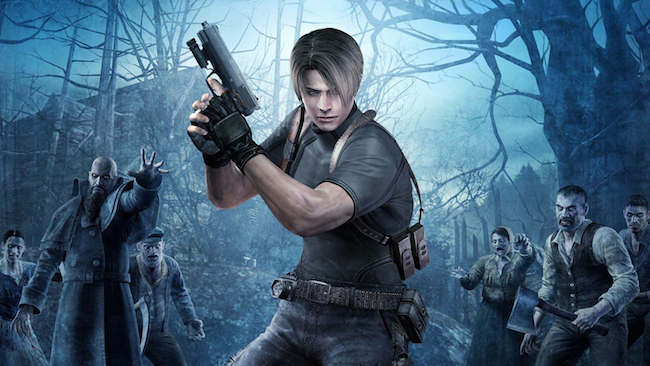
Resident Evil 4 tells the story of ex-police officer, Leon S. Kennedy, 6 years after the events of Racoon City. Having shifted to the private security sector, Leon is sent to a remote village in Spain to track down the President’s daughter, Ashley Graham, who had been kidnapped on her way home. Upon his arrival, he quickly learns that things are not right in this village as he is almost immediately attacked by a crazed religious group known as the “Los Illuminados.” Unlike the previous entries in the series, Resident Evil 4 employs an ancient biological parasite known as “Las Plagas,” which can form a symbiotic relationship with almost any biological creature; rendering it zombie-like in behaviour, but controllable within a hive mind. This new threat would also be carried across into all future installments of the series.
For those unaware, Resident Evil 4 actually went through four major revisions prior to release (ironically!); the first of which turned into what we now know as Devil May Cry. Having played both Code Veronica and RE:5 prior, I felt as if the narrative had become convoluted with the later installments. Now, in hindsight, though, this game has completely changed my opinion on the entire B.O.W concept – at least on a fundamental level. Spain was the perfect setting, and, taken within the context of its original conception, the Las Plagas and the Los Illuminados worked superbly. Leon is also a cool character, straight up; which definitely helped the story. I was genuinely interested and entertained the entire time, and can appreciate why people resonated with this new direction. It exceeded my expectations, actually.
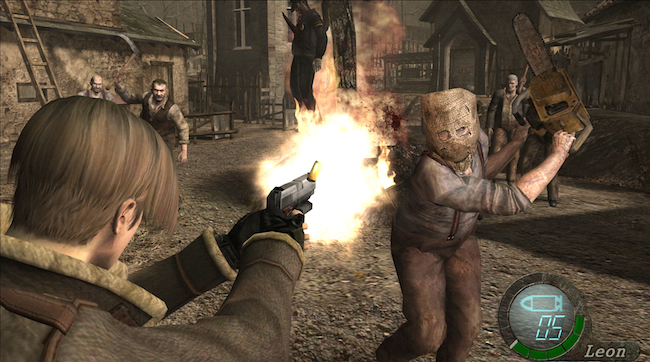
Resident Evil 4 basically reinvents the fundamental mechanics of the series, and introduced concepts that would eventually become commonplace in most action games in the following generation. For example, the player camera is shifted to an over the shoulder view, a larger emphasis is placed on combat (opposed to avoidance), and quick-time-events are mainstreamed for the first time. It feels like an entirely different game to play, but in saying that, there are still a lot of series conventions that are carried across as well; such as the inventory, diaries, and rewarding exploration.
It may have been because of the growing popularity of cover-based shooters at the time, but by the time Resident Evil 5 was released, to me, it felt like an awkward and backwards action game, and I had a difficult time appreciating its mechanics; especially not being able to walk while I was shooting or being able to take cover. I’m not sure if I’ve just played so many action games since then that I’ve had my fill, but the funny thing is I didn’t feel the same playing Resident Evil 4. In fact, I really enjoyed having the space to consider my tactics, the focus on precision, and the ability to manage an inventory outside of real-time. It felt as if smarts played a much larger role than simply being able to take cover and shoot, and in retrospect, I’m even more excited for the potential of Miyazaki’s next project: “The Evil Within.”
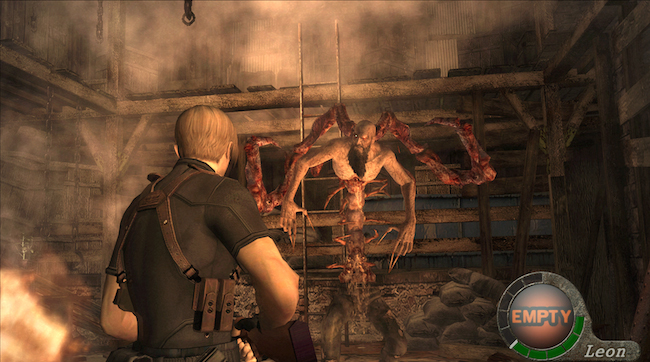
It wasn’t easy adjusting to the “tank controls” during my first couple of hours. However, given the tactical space that you’re nearly always provided with, as well as the average speed at which the enemies move, I actually felt this ended up fitting perfectly with the overall pace of the game. It felt very natural to me by the end, and it was great being able to step backwards during combat, as well as being able to quickly turn around with the tap of a button. In hindsight, I do think a cover system and the ability to walk while aiming could have significantly bridged the outdated feeling of the gameplay, but it works. Don’t get me wrong, though, I don’t mean putting in waist high walls and running and gunning (changes that effect the core design), I simply mean the ability to see around a corner, and more flexibility with aiming.
There are two core elements in RE:4 that I simply couldn’t get enough of, though. First was the semi-open areas that encouraged and rewarded player exploration, without ever diminishing the pace of the overall experience. I hate being overwhelmed with time wasting side objectives. The second was the immense satisfaction of the combat. I really resonated with being able to change my equipment outside of real-time, as well as developing my own unique tactical approach with each combat scenario. Every single weapon was empowering in its own way, and the gold you would gather from exploration was well spent on upgrades that mattered. In my opinion, there was a flawless harmony between exploration and combat as one rewarded the other. It also never grew needlessly complicated or tedious.
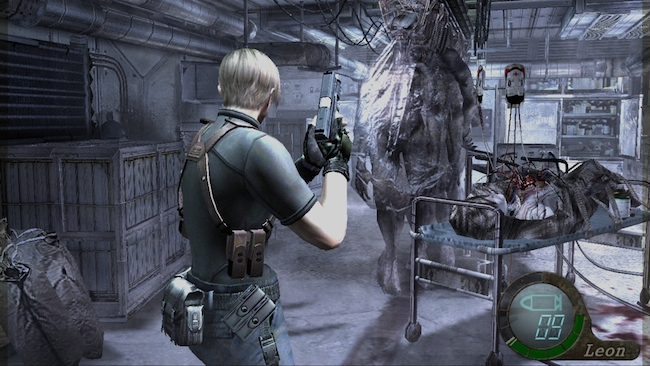
As the game is nearly a decade old, the graphics weren’t really a point of interest for me; although, I can certainly appreciate they were very well received in 2005, and that the HD version I played on PC does help to make the game a lot more approachable. I do, however, appreciate the visual design, overall; even though it’s clear the creators weren’t really aiming for horror. It was more of a gothic approach, and at times, I felt as if I was playing in some twisted version of Indiana Jones – which I thought was great! Sure, there was some repetition with the villagers and scenery, but I still really liked the way in which the environment was laid out. I felt as if I had enough time to become intimate with each setting, before moving along to an entirely different location. It was a very well thought out level of variety.
Voice acting from the sixth generation was sometimes pretty terrible; especially for games that were being translated from Japanese. For this reason, I was able to appreciate most of the dialogue in Resident Evil 4, even if it did sound a little scripted at times. It has its moments (“Help me, Leon!”), but overall, it was probably up there with other games from that era, such as Grand Theft Auto and Metal Gear Solid. The sound design was something I especially appreciated, though. It was often a major contributor in creating those perfectly tense moments, as well as ensuring you knew what was coming from where. The musical score was also quite good, as is common with the series history. I think, had I actually played it in 2005, it would have been one of those go to games for its outstanding presentation.
I always thought I’d regret not playing Resident Evil 4 sooner, and perhaps that’s why it’s sat on the top of my pile of shame for so long. However, having just completed it for the first time, I was utterly surprised with how well the game has aged – mechanically speaking. I played the “Ultimate HD” version, which is probably one of the most unimpressive HD upgrades I’ve seen, but it didn’t really matter. Given the state of the genre today, Resident Evil 4 is exactly what I needed to feed that glimmer of hope that still burns inside me. That glimmer that currently hangs on the line with promising games such as The Evil Within, Alien Isolation, and SOMA. In hindsight, I can certainly see a few areas that could’ve been improved, but it really is the masterpiece of its era that I’d always hoped it would be.











